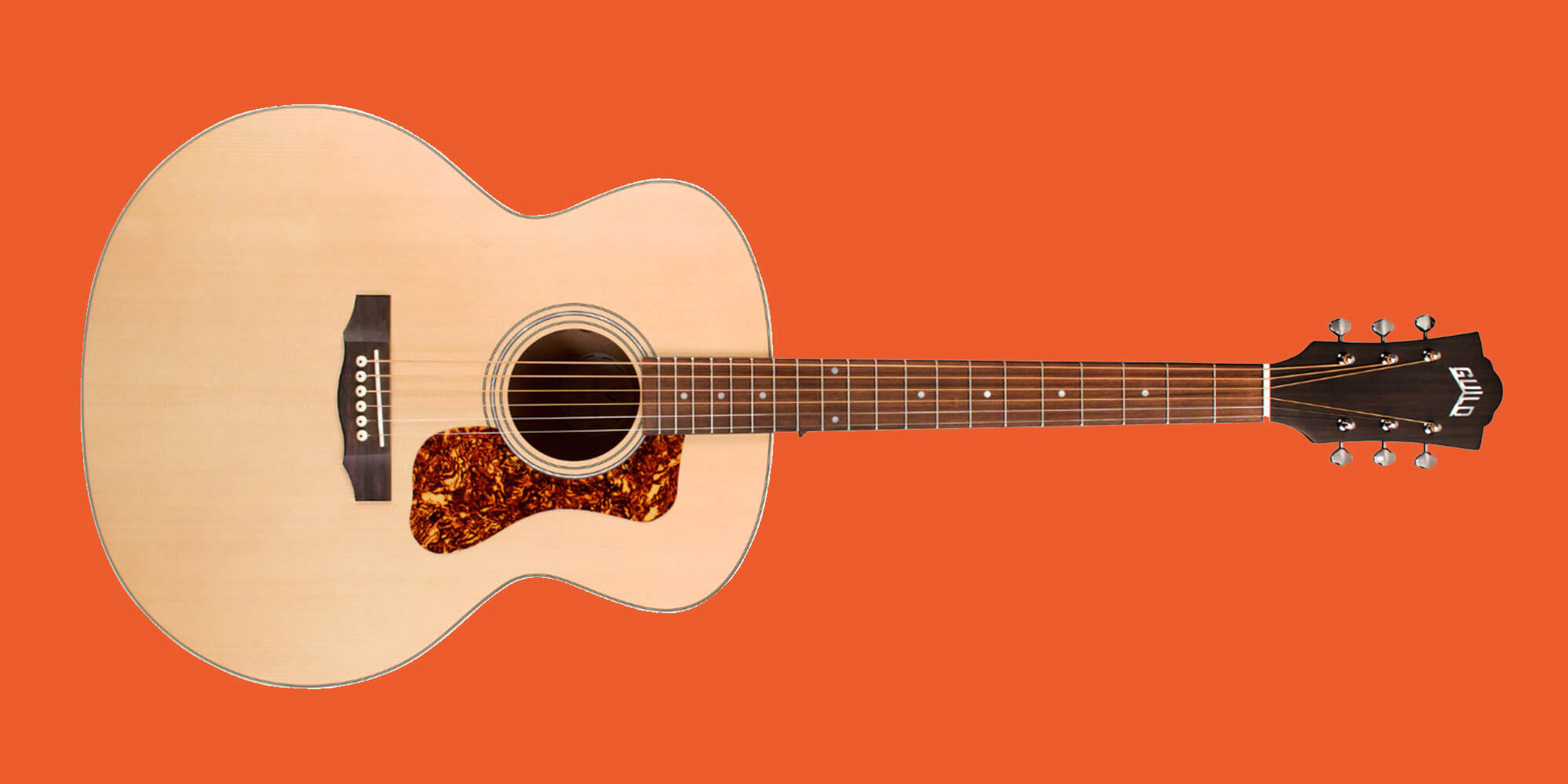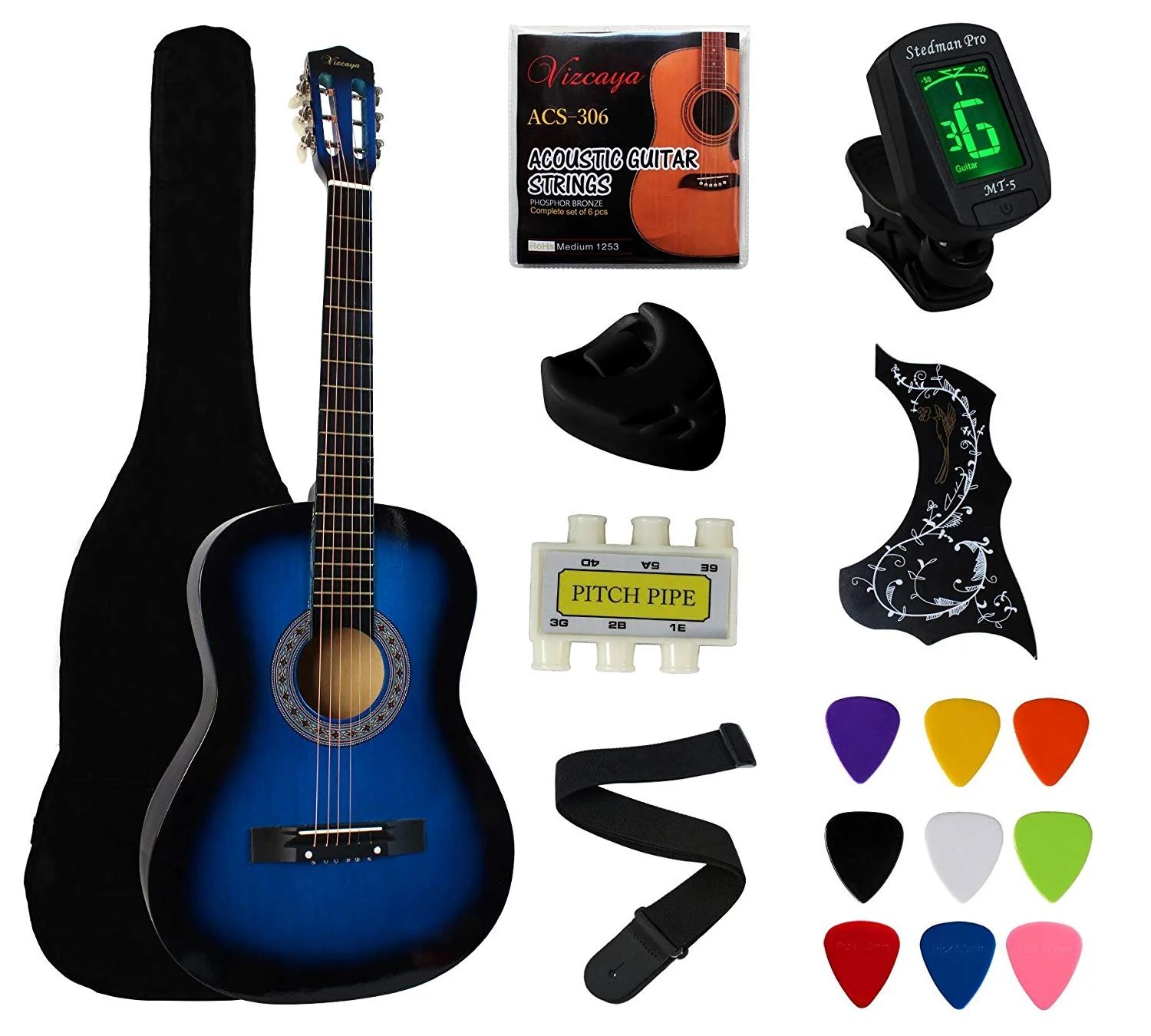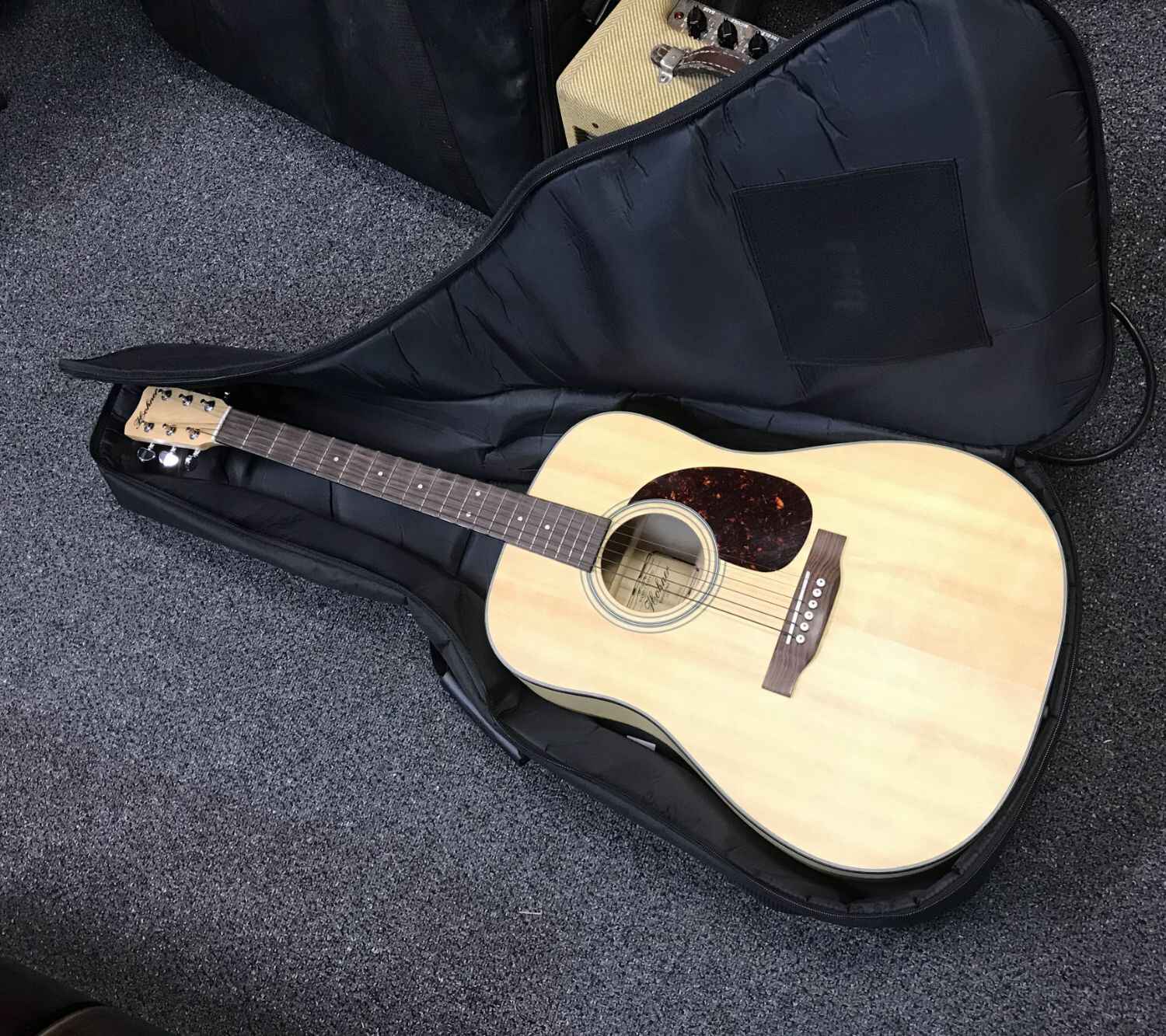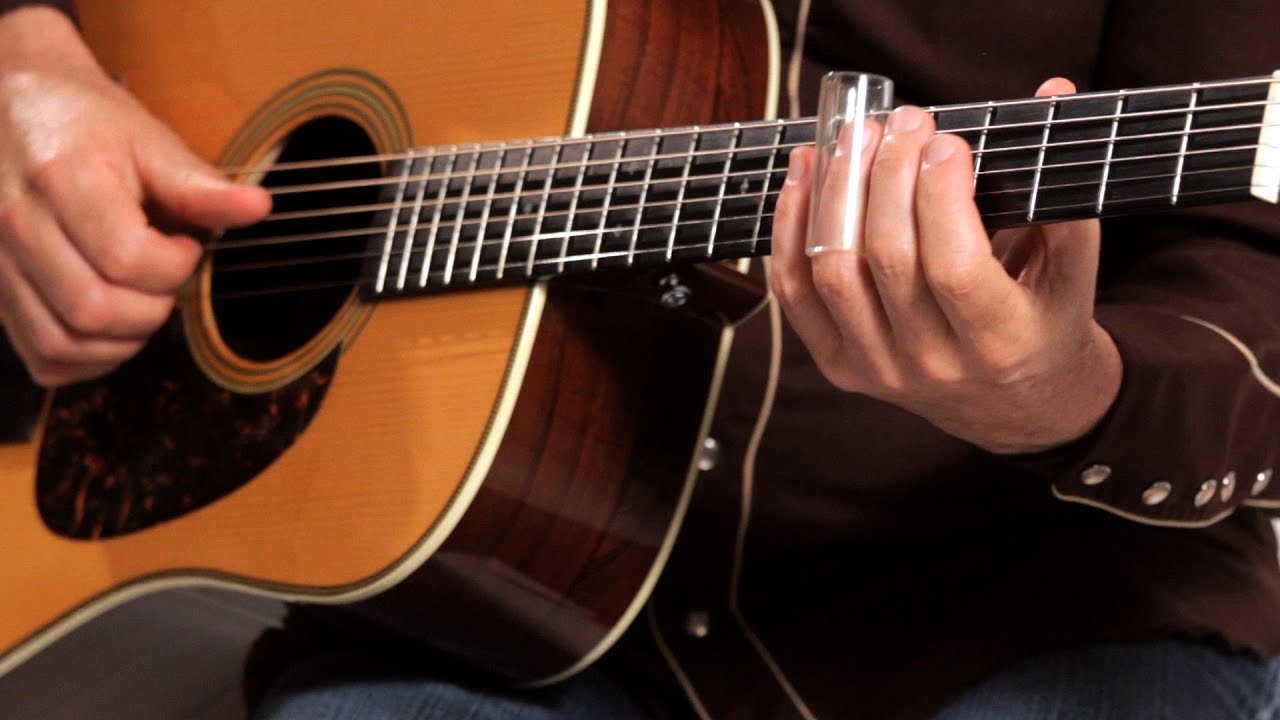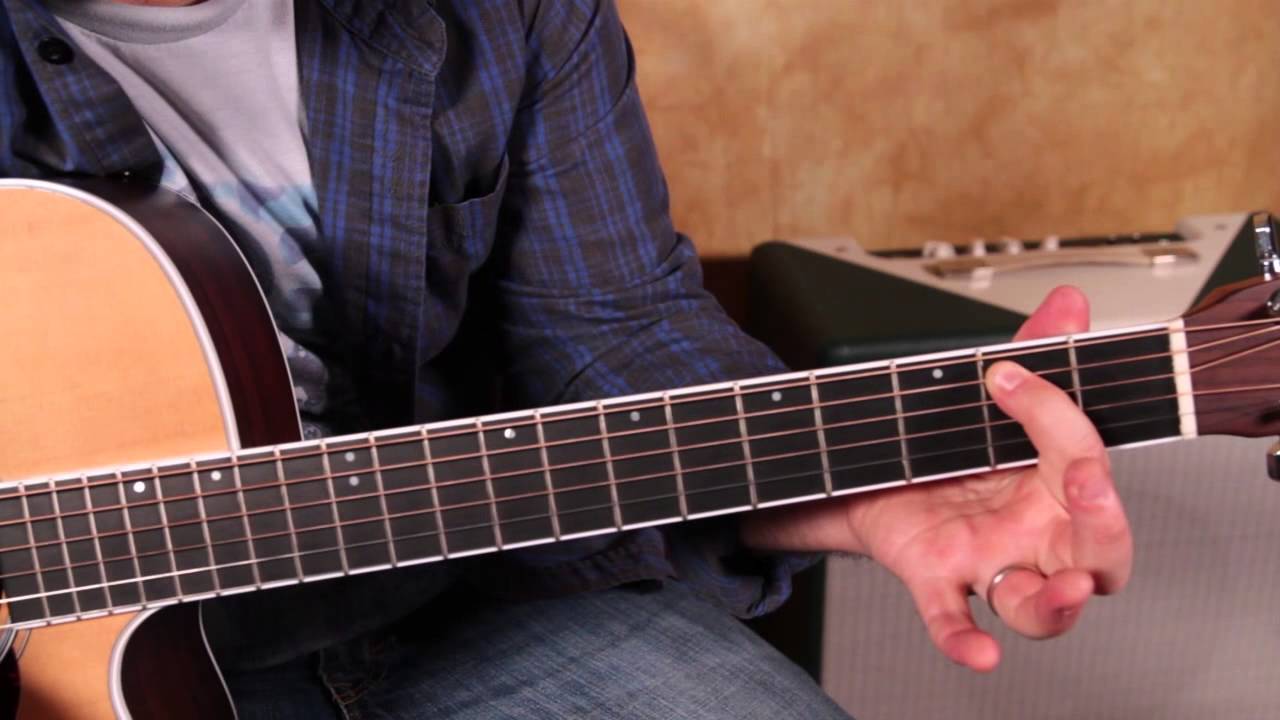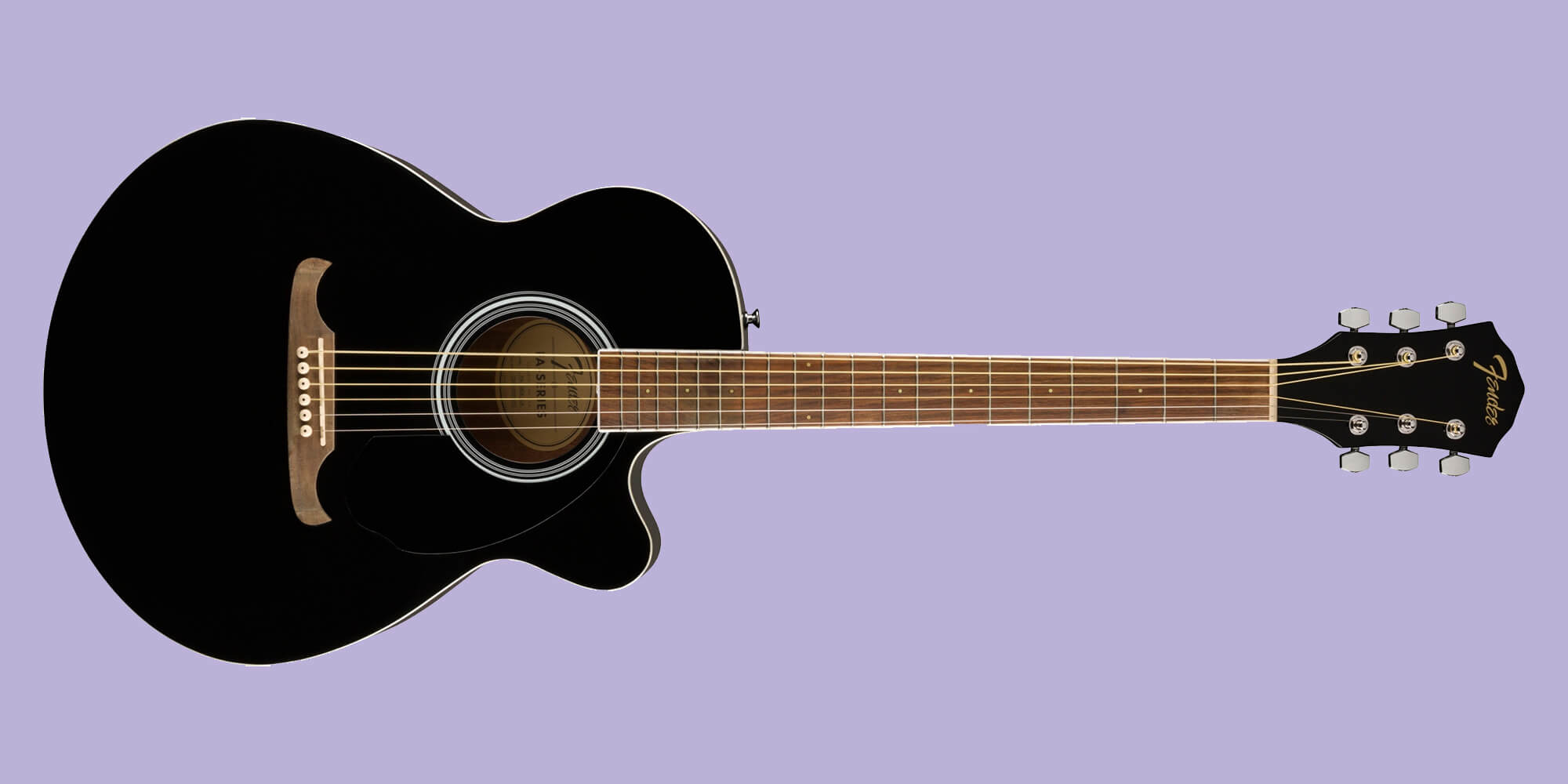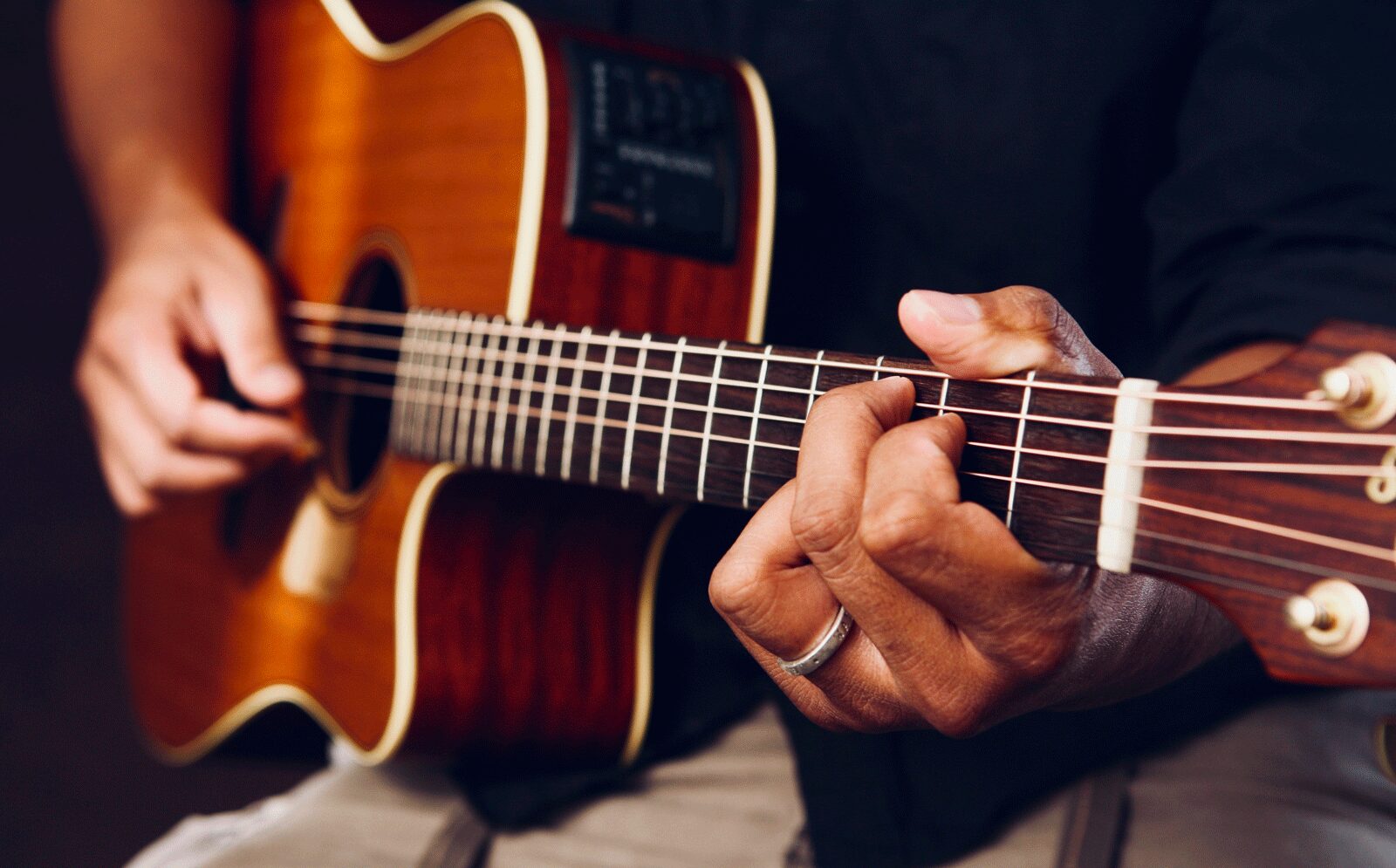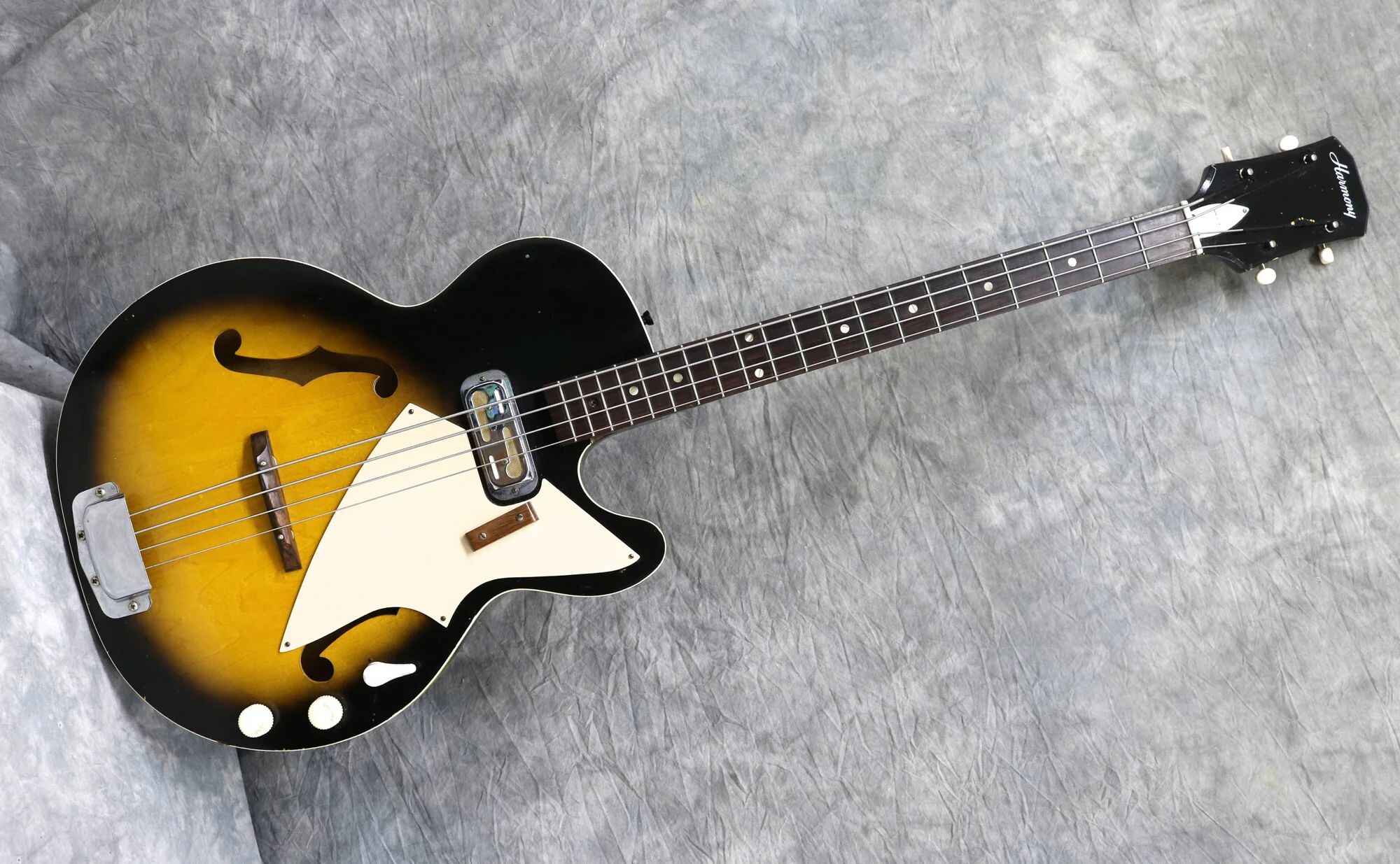Introduction
Welcome to the world of acoustic guitars! Whether you’re a complete beginner or someone who wants to expand their musical skills, buying your first acoustic guitar is an exciting and significant step. The acoustic guitar is a versatile instrument that can be used to play various genres of music, from folk to rock to country. It’s the perfect instrument for both solo performance and accompaniment.
However, with so many options available in the market, finding the right acoustic guitar for beginners can be a bit overwhelming. You might have questions like, “What features should I look for? How much should I spend? Which brand is reliable?” Rest assured, this article will guide you through the process of choosing the perfect acoustic guitar to start your musical journey.
When searching for your first acoustic guitar, there are several factors to consider. Firstly, think about your budget. Acoustic guitars come in a wide price range, so it’s essential to set a budget that suits your financial situation. Keep in mind that while higher-priced guitars may offer better quality, there are still excellent options available for those on a tighter budget.
Next, consider the type of wood used in the guitar’s construction. Different woods produce different tones, so choose one that suits your preferred sound. Common wood options include spruce, mahogany, cedar, and rosewood. Additionally, pay attention to the guitar’s body shape, as it can affect both the sound and comfort of playing. Popular body shapes include dreadnought, concert, and parlor.
Another vital factor to consider is the guitar’s playability. As a beginner, you’ll want an instrument that is comfortable and easy to play. Look for a guitar with a low action (the distance between the strings and the fingerboard), as this will make fretting notes easier. Additionally, check for a guitar with a slim neck, which is more comfortable for beginners with smaller hands.
Lastly, it’s worth considering the reputation and reliability of the guitar brand. Established brands like Fender, Yamaha, and Taylor have earned their reputation for producing quality instruments suitable for beginners.
In the next sections, we’ll explore budget-friendly options for beginner acoustic guitars, discuss top brands you can trust, and provide recommendations based on different playing styles. We’ll also cover essential accessories to enhance your playing experience and offer some helpful tips for learning and playing your first acoustic guitar. By the end of this article, you’ll be equipped with the knowledge you need to make an informed decision and start your musical journey on the right note.
Factors to Consider When Buying Your First Acoustic Guitar
When embarking on the journey of buying your first acoustic guitar, there are several key factors to consider. These factors will help you find an instrument that suits your needs, preferences, and budget. Let’s explore them in detail:
1. Budget: Determine your budget and stick to it. Acoustic guitars come in a wide range of prices, so it’s crucial to set a budget that works for you. Remember that while more expensive guitars often offer better quality, there are still fantastic options available at lower price points.
2. Construction and Materials: Pay attention to the guitar’s construction and materials used. Look for guitars made from quality tonewoods like spruce, mahogany, cedar, or rosewood. Consider the body shape, as it can affect the guitar’s sound and comfort during play, with options such as dreadnought, concert, and parlor.
3. Playability: As a beginner, ease of play is essential. Look for a guitar with a comfortable neck shape and width. Consider the action, which is the distance between the strings and the fretboard. A lower action can make it easier to press down on the strings and produce clean notes.
4. Sound Quality: Each guitar has its unique sound characteristics. Experiment with different guitars and determine the sound that resonates with you. Pay attention to the guitar’s projection, sustain, and tonal range.
5. Brand Reputation: Consider the reputation and reliability of the guitar brand. Established brands like Yamaha, Fender, Taylor, and Gibson have a track record of producing quality instruments. Research customer reviews and seek recommendations from experienced guitar players.
6. Size and Body Shape: Consider the size and body shape of the guitar. If you’re a smaller individual or have smaller hands, you may prefer a smaller body shape like a concert or parlor guitar. If you’re comfortable with a larger size, a dreadnought or jumbo-size guitar may be more suitable.
7. Accessories and Extras: Take into account any additional accessories or extras that may come with the guitar. Some guitars may include a gig bag, extra strings, a tuner, or even a built-in pickup for amplification. These extras can add value and convenience to your purchase.
By considering these factors, you’ll be able to narrow down your options and make an informed decision when purchasing your first acoustic guitar. Remember, the right guitar for you is the one that feels comfortable, sounds great, and inspires you to keep playing and learning. So, take your time, try out different guitars, and trust your instincts.
Budget-friendly Options for Beginner Acoustic Guitars
Starting your guitar journey doesn’t have to break the bank. There are plenty of budget-friendly options available for beginner acoustic guitars that offer both quality and affordability. Here are some great choices to consider:
1. Yamaha F335: Yamaha is known for producing high-quality instruments at affordable prices, and the F335 acoustic guitar is no exception. It offers a solid construction, good playability, and a balanced sound, making it a popular choice for beginners.
2. Fender FA-115: The Fender FA-115 is a great entry-level acoustic guitar that offers excellent value for money. It features a dreadnought body shape, a spruce top, and mahogany back and sides, delivering a rich and resonant tone.
3. Epiphone DR-100: Epiphone is a trusted brand that offers affordable alternatives to their Gibson counterparts. The DR-100 acoustic guitar is a reliable and budget-friendly option, featuring a mahogany body, spruce top, and a comfortable slim-taper neck.
4. Ibanez AW54OPN: Ibanez is known for producing guitars that offer superb playability, and the AW54OPN is no exception. It boasts a mahogany body, solid mahogany top, and an open-pore natural finish, providing a warm and resonant sound.
5. Jasmine S34C NEX: Jasmine guitars, a division of Takamine, are well-regarded for their affordable and quality instruments. The S34C NEX acoustic guitar features a grand orchestra body shape, a spruce top, and advanced scalloped bracing, resulting in a balanced and powerful sound.
6. Seagull S6 Original: Although slightly pricier than some other options, the Seagull S6 Original offers exceptional value for its quality. Handcrafted in Canada, it features a solid cedar top, wild cherry back and sides, and a comfortable tapered headstock, producing a warm and detailed sound.
Remember, while these guitars are budget-friendly, they still offer great sound and playability. It’s important to try out different models to find the one that feels comfortable for you and produces the sound you desire. Additionally, consider purchasing from a reputable retailer or consulting with experienced guitar players for recommendations.
Investing in a budget-friendly acoustic guitar is a fantastic way to start your musical journey without putting a strain on your finances. With these options, you’ll have an instrument that inspires you to play, learn, and discover your unique musical voice.
Top Acoustic Guitar Brands for Beginners
When it comes to buying your first acoustic guitar, choosing a reliable and reputable brand is crucial. Here are some of the top acoustic guitar brands that have earned a strong reputation among beginners:
1. Yamaha: Yamaha is a well-respected brand known for producing high-quality and affordable instruments. Their acoustic guitars, such as the FG and FS series, offer exceptional playability, excellent sound quality, and reliable construction, making them a popular choice for beginners.
2. Fender: Fender is synonymous with electric guitars, but they also produce fantastic acoustic guitars suitable for beginners. Models like the CD-60 and FA-125 offer great value for money, with solid construction, easy playability, and a range of tonal options.
3. Taylor: While Taylor guitars are often associated with higher price points, they also offer more affordable options for beginners. The Taylor Big Baby and Academy series provide excellent sound, comfortable playability, and the renowned Taylor craftsmanship to help beginners start their musical journey with quality instruments.
4. Epiphone: Epiphone offers affordable alternatives to their Gibson counterparts, making them an excellent choice for beginners on a budget. Their acoustic guitars, such as the AJ-100 and DR-100, deliver solid construction, good playability, and a range of tones suitable for different musical styles.
5. Seagull: Seagull guitars, handcrafted in Canada, are known for their excellent quality and sound. The Seagull S6 Original and Entourage series are popular among beginners due to their solid construction, warm tones, and comfortable playability.
6. Martin: Martin is a legendary brand known for their high-end acoustic guitars, but they also offer more affordable options for beginners. The Martin LX1 Little Martin and Dreadnought Junior series provide excellent sound, craftsmanship, and a compact size that’s perfect for beginners.
When considering a brand, it’s important to try out different models and find one that suits your playing style, preferences, and budget. Each brand has its own unique characteristics, so it’s worth exploring and finding the one that resonates with you.
It’s also worth mentioning that purchasing from reputable retailers, whether online or at a physical store, can ensure you’re getting an authentic instrument and reliable customer service. Additionally, seeking recommendations from experienced guitar players and reading customer reviews can help you make an informed decision.
By choosing a reputable brand for your first acoustic guitar, you can have confidence in the instrument’s quality and enjoy a better playing experience. Remember, the right brand will provide a solid foundation for your musical journey and inspire you to keep learning and playing.
Best Acoustic Guitars for Different Playing Styles
Depending on your preferred playing style and musical genre, certain acoustic guitars may be better suited to your needs. Here are some recommendations for different playing styles:
1. Fingerstyle: If you enjoy playing intricate fingerpicking patterns, a guitar with a wide neck and a balanced tone is ideal. The Taylor 814ce and the Martin HD-28 are renowned for their rich sound, excellent projection, and comfortable playability, making them great choices for fingerstyle players.
2. Strumming: For those who love strumming chords and playing rhythm, a guitar with a strong projection and a bright tone is preferred. The Gibson J-45 and the Yamaha FG800 are popular options, offering a rich and balanced sound that cuts through a mix and provides a satisfying strumming experience.
3. Blues: Blues players often seek guitars with a warm and bluesy sound. The Epiphone Delta Blues Dobro Resonator and the Gretsch G9200 Boxcar Round-Neck Resonator are excellent choices, providing that iconic resonator tone perfect for slide playing and bluesy licks.
4. Folk: For folk music enthusiasts, guitars with a bright and crisp tone are favored. The Martin D-28 and the Seagull S6 Folk are highly regarded for their versatility, offering a balance between warmth and clarity that is well-suited to folk melodies and strumming patterns.
5. Country: Country players often gravitate towards guitars with a twangy and lively tone. The Fender American Professional Telecaster Acoustic-Electric and the Taylor 310ce provide the bright, articulate sound that complements country-style playing, making them excellent choices for country enthusiasts.
6. Classical: Classical guitarists require nylon-string guitars with a wide fingerboard and a mellow tone. The Cordoba C7 and the Yamaha C40 are popular options for beginners, offering a comfortable playing experience and quality sound that is ideal for classical repertoire.
Remember, these are just a few examples, and there are many other great options available. As always, experimentation and trying out different guitars will ultimately help you find the one that suits your playing style and preferences the best.
Additionally, keep in mind that the choice of strings can also significantly impact the sound of your guitar. Different materials and gauges can enhance specific playing styles and tonal qualities. Experimenting with different string types can help you achieve the sound you desire.
Whether you’re strumming chords, fingerpicking, or playing complex melodies, selecting an acoustic guitar that matches your playing style will enhance your musical experience and inspire you to explore new techniques and genres.
Essential Accessories for Your First Acoustic Guitar
When you purchase your first acoustic guitar, it’s important to invest in essential accessories that will enhance your playing experience and protect your instrument. Here are some must-have accessories for your new acoustic guitar:
1. Guitar Case or Gig Bag: A durable guitar case or gig bag is crucial for safely transporting and storing your guitar. It provides protection against bumps, scratches, and changes in temperature or humidity. Consider whether you’ll be traveling frequently or only playing at home to choose the most suitable option.
2. Guitar Strap: A guitar strap allows you to play while standing or sitting. It relieves the strain on your arms and provides comfort during extended playing sessions. Look for a strap that is adjustable and comfortable for your playing style and body type.
3. Tuner: Keeping your guitar in tune is essential for producing pleasant and accurate sound. A reliable tuner, such as a clip-on or pedal tuner, can help you tune your guitar quickly and easily.
4. Picks: Picks are handy for playing certain styles or achieving a specific sound. Beginners often find picks helpful for strumming or playing fast passages. Experiment with different picks of varying thicknesses to find the one that feels comfortable and produces the desired tone for your playing style.
5. Spare Strings: Strings can break unexpectedly, so it’s always a good idea to have spare strings on hand. Different types of strings offer different tones and feel, so consider trying out different brands and materials to find the ones that suit your sound preferences.
6. Guitar Stand or Wall Hanger: A guitar stand or wall hanger provides a safe and convenient way to display your guitar and have it easily accessible for impromptu practice sessions. It also helps prevent accidental damage by keeping the guitar off the floor or leaning against walls.
7. Cleaning and Maintenance Tools: Keeping your guitar clean and well-maintained is essential for its longevity and playability. Invest in a microfiber cloth for wiping down the guitar, guitar polish for cleaning, and a humidifier to regulate moisture levels in dry environments.
Remember, these accessories are essential for maintaining and protecting your guitar, as well as making your playing experience more enjoyable. As you progress in your guitar journey, you may also explore additional accessories such as capos, pedal effects, and recording equipment.
Lastly, it’s worth considering investing in guitar lessons or instructional materials. Learning proper technique and foundational skills from a qualified instructor can greatly benefit your overall progress as a guitarist.
By acquiring these essential accessories and caring for your guitar properly, you’ll ensure that your first acoustic guitar stays in great condition and continues to bring you joy and inspiration for years to come.
Tips for Learning and Playing Your First Acoustic Guitar
Congratulations on purchasing your first acoustic guitar! Learning to play an instrument can be a rewarding and fulfilling experience. Here are some tips to help you get started and make the most of your journey with your new acoustic guitar:
1. Practice Consistently: Consistency is key when it comes to learning the guitar. Set aside regular practice sessions and commit to practicing every day, even if it’s just for a short time. Remember, quality practice is more important than quantity.
2. Start with Basic Chords: Begin by learning basic chords such as G, C, D, E, and A. These chords are used in countless songs and will form the foundation for your playing. Practice transitioning between chords smoothly until you can play them effortlessly.
3. Learn Proper Technique: Focus on developing good playing technique right from the beginning. Pay attention to hand positioning, finger placement, and posture. Consider taking lessons from a qualified instructor who can teach you proper technique and help you avoid bad habits.
4. Use Online Resources and Tutorials: Take advantage of the wealth of online resources available for learning guitar. There are tutorials, chord charts, instructional videos, and even interactive apps that can assist you in your learning journey. Utilize these tools to supplement your practice sessions.
5. Play Along with Songs: Find beginner-friendly songs that you enjoy and try playing along with them. It can be motivating and fun to play music you love. Start with simple songs with a few chords and gradually challenge yourself with more complex tunes.
6. Be Patient and Persistent: Learning an instrument takes time and patience. Don’t get discouraged if you encounter obstacles or find certain techniques challenging. Stay persistent, embrace the learning process, and celebrate small victories along the way.
7. Seek Guidance and Support: Join local guitar communities, online forums, or social media groups where you can connect with other guitarists. They can offer advice, encouragement, and inspiration. Consider finding a mentor or teacher who can provide guidance and support as you progress.
8. Play with Others: Playing music with others can enhance your skills and provide a different level of enjoyment. Join jam sessions, open mic nights, or even start a band with fellow musicians. Collaborating with others will help you grow as a guitarist and open up new musical opportunities.
9. Enjoy the Process: Remember to have fun and enjoy the process of learning and playing the guitar. Enjoy the sound of your guitar resonating, experiment with different playing styles, and let your creativity flow. The joy you find in playing will keep you motivated to continue learning.
10. Celebrate Milestones: As you progress, celebrate your milestones along the way. Whether it’s mastering a challenging technique, playing a complete song, or performing in front of others, recognize and celebrate your achievements. It will inspire you to keep pushing forward.
Learning to play the guitar is a journey that requires dedication, practice, and a passion for music. By following these tips and staying committed to your practice routine, you’ll develop your skills, build a strong foundation, and experience the joy of playing the acoustic guitar.
Conclusion
Congratulations on reaching the end of this guide to buying and learning your first acoustic guitar! By considering the factors when purchasing, exploring budget-friendly options, and choosing a reputable brand, you’ve set yourself up for success. Remember to select an instrument that matches your playing style and preferences, ensuring an enjoyable journey as you delve into the world of music.
Along with the essential accessories, taking care of your guitar and practicing regularly will contribute to your growth as a guitarist. Embrace the learning process, be patient, and celebrate every milestone you achieve along the way. Seek guidance from experienced players and leverage the wealth of resources available online to enhance your skills and support your musical progress.
Learning the acoustic guitar is a deeply rewarding experience that can bring you joy for a lifetime. Whether you strum chords, fingerpick melodies, or dive into various genres, let your creativity shine. As you continue your musical journey, immerse yourself in the beauty of music and share your passion with others. The acoustic guitar is an instrument that can touch hearts, evoke emotions, and create lifelong memories.
So, pick up your guitar, tune those strings, and let the magic begin. Happy playing!









